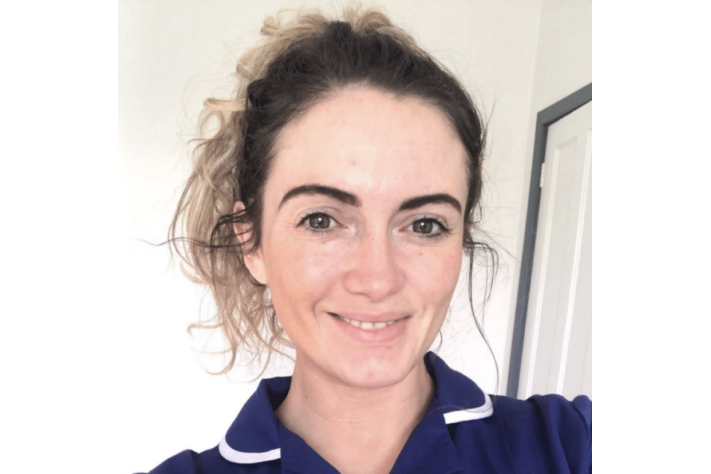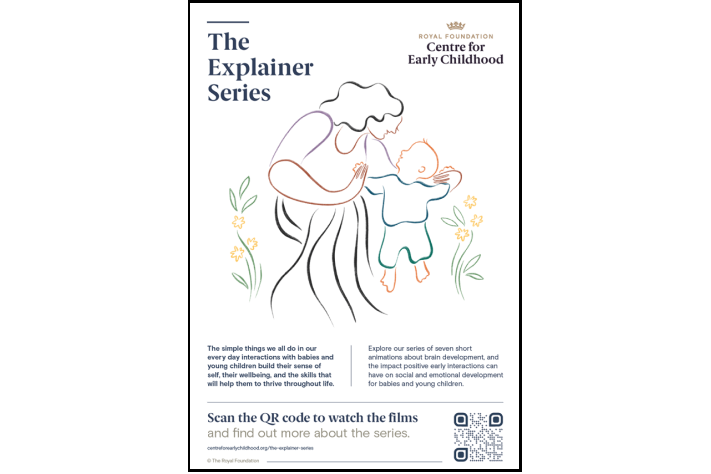15th August 2025
The Explainer Series from The Royal Foundation Centre for Early Childhood: Making Sense of the Science Behind Everyday Interactions
In support of the recent release of the Explainer Series of short animations/videos by The Royal Foundation Centre for Early Childhood, we are delighted to share this Voices blog by Sarah Cartner, Specialist Health Visitor for 1001 Critical Days and Solihull Approach, and Co-Chair of the iHV Health Visiting Advisory Forum (HVAF), as she shares her experience of being one of the practitioners who helped co-produce these films.

Sarah Cartner, Specialist Health Visitor for 1001 Critical Days and Solihull Approach, and Co-Chair of the iHV Health Visiting Advisory Forum (HVAF)
Thanks to the brilliant work of organisations like the Institute of Health Visiting (iHV), Parent Infant Relationship Services (PAIRS), and the incredible Parent-Infant Mental Health Champions across the UK, many health visitors today have a deeper understanding of early brain development than ever before.
And that’s a game-changer.
We know that those earliest years of life, before school, even before talking, are a time of extraordinary growth. We understand that babies and children’s brains and bodies are being shaped every single day by the people around them, the environments they live in, and the relationships they experience. Warm, loving, responsive interactions with parents, carers, grandparents, and other adults are the building blocks of healthy development in this critical period.
As professionals, many of us are familiar with this science. But getting these vital messages out to parents, families, and the wider public is still a work in progress. We all have a part to play in helping parents feel informed, confident, and empowered to support their children’s development right from the very beginning.
That’s where The Royal Foundation Centre for Early Childhood comes in. They’re working hard to build understanding across society about the importance of early childhood.
Earlier this year, The Centre released the Shaping Us Framework, a resource that outlines how essential social and emotional skills are built in early childhood. It highlights 30 key, social and emotional skills grouped into six themes that researchers, clinicians, and practitioners all agree are fundamental. These skills are then grouped into 6 clusters including ‘know ourselves’, ‘nurture our relationships’, and ‘manage our emotions’. (You can watch a short film about it, featuring iHV’s CEO Alison Morton, on The Centre’s YouTube here).
Explainer Series of Films and Resources
Building on The Framework, The Centre has now launched a brand-new Explainer Series – a collection of short, animated films and practical resources designed to break down the science of early development into simple, engaging, and accessible ideas.
These animations focus on key aspects of early interactions, like attunement and co-regulation, and explain how these everyday moments between adults and children help shape a child’s brain, emotions, and sense of self. They zoom in on different aspects of early interactions, such as attunement and co-regulation, explaining what happens in these interactions and how this supports child development. The films are lively, creative, and just a few minutes long, making them perfect for team meetings, training sessions, or even just a quick refresher between visits.
To complement the animations, there are also practitioner guides and science briefings for anyone who wants to dive deeper into the evidence behind the practice. I was lucky enough to be part of a fantastic group of practitioners from across the UK who helped co-produce these films and it’s exciting to see them come to life!
As health visitors, one of our strengths is translating complex science into real, everyday advice that feels supportive rather than overwhelming or judgemental. These new resources are 3-minute tools we can use to do just that. Whether in a clinic, a home visit, or a community group, they’re not an ‘extra thing’ to do, but they are an extra tool we can use to support the messages we’re already giving. The 1001 Critical Days period and the science about brain development and relationships is everyone’s business.
The animations are more interactive than a leaflet and help to really bring the messages to life in a memorable way. They’re also great conversation starters for teams, helping us reflect on our own practice and how we can better support families. I also hope to share the films with other practitioners and volunteers across our city – building a shared understanding of early child development across different services.
And they’re not just for professionals. The films are clear and parent-friendly, and the accompanying guidance shows how to use them to spark sensitive, strengths-based conversations with families. Whether you’re working with new or experienced parents or carers, these resources can help deepen understanding and encourage more nurturing, responsive interactions.
I’m really looking forward to seeing how different teams and services put these films to use. Together, we can help ensure that every child grows up feeling safe, loved, and ready to thrive, with the lifelong skills that begin in those earliest moments.
Let’s keep spreading the word.







